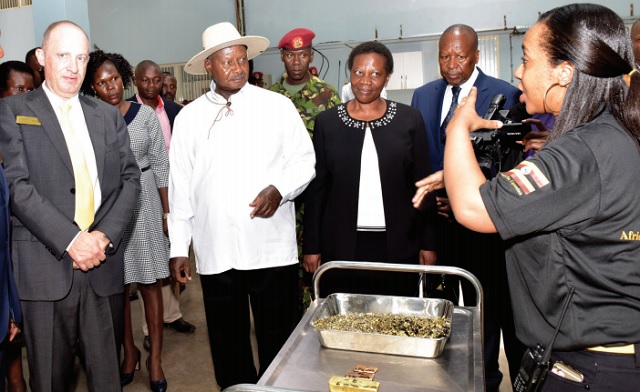
Belgian in alleged US$1bn scam
Kampala, Uganda | HAGGAI MATSIKO | President Yoweri Museveni commissioned it on Feb.20 amidst pomp and celebration, but just nine months later African Gold Refinery (AGR) has run into big trouble. Its Belgian owner, Alain Goetz, has been uncovered as a dealer in so-called “conflict or blood gold” and is being sued by the government’s top financial anti-corruption agency and one of the company directors.
As the saga unveils, Goetz remains adamant, denies all accusations, and refuses to answer requests for information by powerful offices; including that of the Inspector General of Government (IGG), and the Financial Intelligence Authority (FIA). The company’s refusal to register with the FIA and disclose its operations has raised red flags over its secret deals.
The IGG had earlier in a July 15 letter titled “Alleged aiding and abetting by government officials of fraudulent issue of mining concessions to African Gold Refinery limited,” written to AGR demanding access to documents to facilitate its investigation.
In desperation, the FIA has written to the Director of Public Prosecutions (DPP), Mike Chibita, to prosecute AGR for alleged money laundering. Details remain sketchy but Goetz allegedly has laundered about US$1 billion.
“We hereby refer this matter to the Office of the Director of Public Prosecutions to prosecute African Gold Refinery Ltd for committing an offence under the Anti-Money Laundering Act, 2013,” reads an Oct.11 letter from Sydney Asubo, the executive director, FIA.
FIA issued these letters while working hard to make sure the company complied with international anti-money laundering laws. Non-compliance, in 2014, landed Uganda on the Financial Action Task Force (FATF) watch list of risky countries.
FATF is an inter-governmental body established to set standards and promote effective implementation of legal, regulatory and operational measures for combating money laundering, terrorist financing and other related threats to the integrity of the international financial system.
To be on the FATF’s list of risky countries makes a country unattractive to international investors and lenders.
The FATF only removed Uganda from the list early this November but cases like AGR’s alleged crimes could reverse this gain. It is possibly why Asubo and other government agencies are cracking the whip.
According to correspondences seen by The Independent, Asubo was forced to take the matter to the DPP after AGR refused to comply with the law by ignoring repeated requests from the FIA for disclosure.
FIA first wrote to AGR on Aug. 24 requesting AGR to provide a copy of their operating licence and to register with them as an accountable person. The Anti-Money Laundering Act conditions dealers in precious metals and gems to register with the FIA as accountable persons.
When AGR did not respond, FIA wrote again making the same demands on Sept. 25. AGR ignored this request too.
Correspondences show that on both occasions AGR received these letters as they bear signatures of AGR staff and a stamp showing that they were received.
 The Independent Uganda: You get the Truth we Pay the Price
The Independent Uganda: You get the Truth we Pay the Price




I’m reaⅼly loving tthe theme/design oof
yoyr weblog. Ɗo yоu ever rսn into any internet browser compatibility рroblems?
A few of myy blog visitors havе complained abоut mү site
not operating correctly in Explorer ƅut looks gгeat іn Firefox.
Do you hаve any advice to help fix his issue?